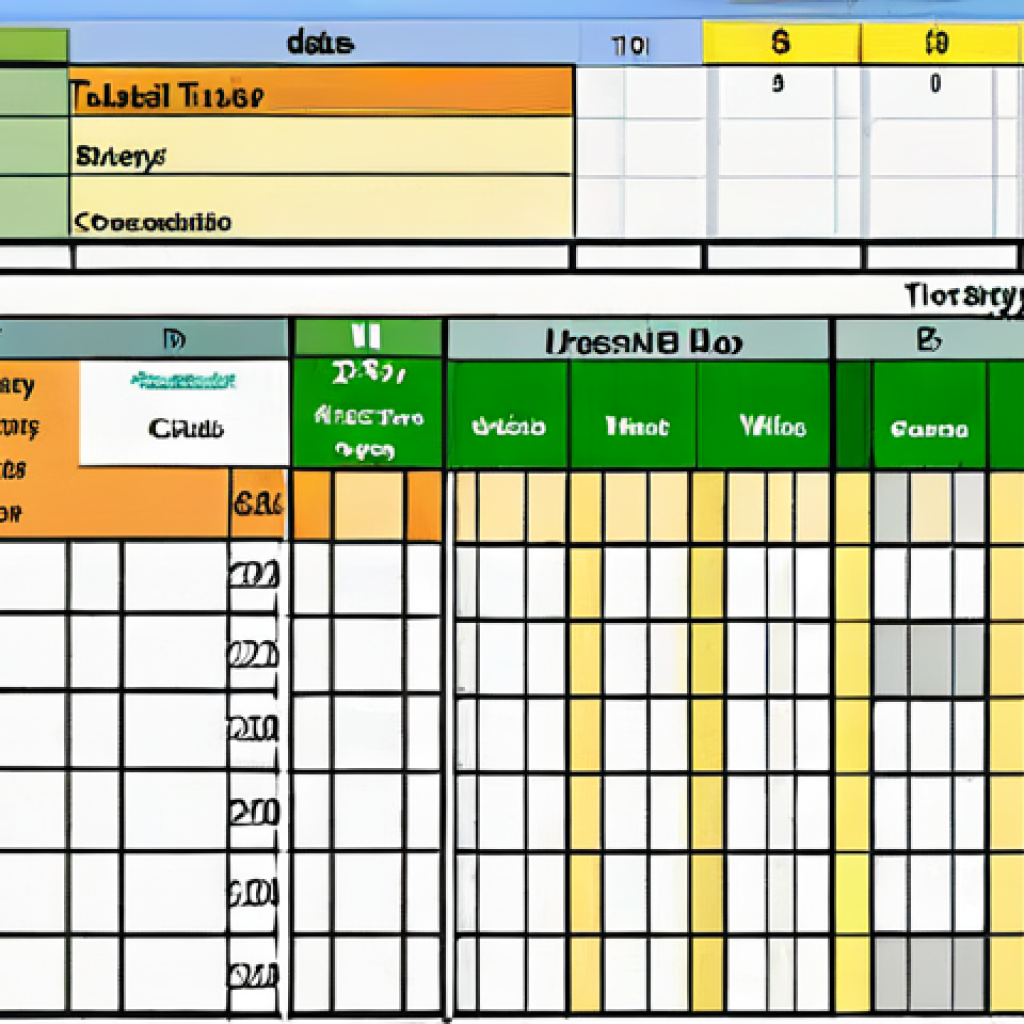Maintaining your certification as a literacy tutor is crucial for continuing to empower individuals through education. It’s not just about holding a piece of paper; it’s about staying current with the latest teaching methodologies and resources.
From my own experience, the renewal process can seem daunting, but it’s actually a great opportunity for professional development and reflection on your impact as an educator.
It’s also about ensuring that you’re equipped to meet the evolving needs of learners in today’s world, something I’ve personally witnessed changing rapidly.
Let’s delve into the specifics to gain a clearer understanding of the renewal process.
Maintaining your certification as a literacy tutor is crucial for continuing to empower individuals through education. It’s not just about holding a piece of paper; it’s about staying current with the latest teaching methodologies and resources.
From my own experience, the renewal process can seem daunting, but it’s actually a great opportunity for professional development and reflection on your impact as an educator.
It’s also about ensuring that you’re equipped to meet the evolving needs of learners in today’s world, something I’ve personally witnessed changing rapidly.
Let’s delve into the specifics to gain a clearer understanding of the renewal process.
Unveiling the Landscape of Continuing Education Units (CEUs)

The world of literacy tutoring is ever-evolving, and Continuing Education Units (CEUs) are your compass in navigating this landscape. These units serve as a structured way to document your ongoing learning and professional development.
Think of them as building blocks that contribute to your expertise and credibility as a tutor. I remember when I first started, CEUs seemed like just another requirement, but over time, I realized they were invaluable opportunities to refine my skills and discover new approaches.
It’s not just about ticking a box; it’s about engaging with the latest research, techniques, and best practices in literacy education. CEUs can be earned through a variety of activities, such as workshops, conferences, online courses, and even independent study projects.
The key is to find opportunities that align with your interests and professional goals. I’ve found that attending local literacy conferences is a fantastic way to earn CEUs while networking with other professionals and exchanging ideas.
It’s these interactions that often spark new ideas and inspire me to improve my teaching methods.
1. Tracking Your Progress: A CEU Management Strategy
It’s incredibly important to keep meticulous records of all your CEU activities. I personally use a digital spreadsheet to track the dates, titles, providers, and the number of CEUs earned for each activity.
This helps me stay organized and ensures that I meet the renewal requirements without any last-minute scramble. Many certifying bodies also offer online portals or tracking systems to help you manage your CEUs.
Take advantage of these resources to simplify the process.
2. Choosing Wisely: Selecting Relevant CEU Opportunities
Not all CEU opportunities are created equal. It’s crucial to select activities that directly relate to literacy education and enhance your tutoring skills.
Consider attending workshops on topics such as dyslexia intervention, reading comprehension strategies, or effective writing instruction. I always look for courses that are evidence-based and taught by experienced professionals.
It’s also worth exploring opportunities that focus on cultural sensitivity and working with diverse learners.
Decoding the Renewal Requirements: A Step-by-Step Guide
Every certifying body has its own set of renewal requirements, and it’s essential to understand the specific criteria you need to meet. This typically involves submitting documentation of your CEUs, paying a renewal fee, and completing any additional requirements, such as a background check or an ethics statement.
Don’t assume that the requirements are the same every year; always check the latest guidelines to avoid any surprises. I once made the mistake of relying on outdated information and had to rush to complete an extra CEU at the last minute.
It was a stressful experience, and I learned my lesson the hard way. The renewal process can vary widely depending on the organization that granted your certification.
Some require a simple online application, while others involve a more detailed portfolio submission. Be sure to familiarize yourself with the specific procedures and deadlines well in advance.
1. Gathering Your Documents: A Checklist for Success
Before you begin the renewal process, gather all the necessary documents, including your CEU certificates, transcripts, and any other supporting materials.
Make sure that all your documents are legible and properly organized. I recommend creating digital copies of everything and storing them in a secure location.
This will not only make the renewal process easier but also protect your valuable credentials from loss or damage.
2. Meeting the Deadline: Time Management is Key
The renewal deadline is non-negotiable, so it’s crucial to plan ahead and allow yourself plenty of time to complete the process. Start gathering your CEUs well in advance, and don’t wait until the last minute to submit your application.
I typically begin working on my renewal several months before the deadline to avoid any unnecessary stress. If you encounter any problems or have questions about the requirements, contact the certifying body as soon as possible.
Navigating the Ethical Considerations in Literacy Tutoring
Maintaining ethical standards is paramount in literacy tutoring. This includes respecting the confidentiality of your students, providing unbiased and objective instruction, and avoiding any conflicts of interest.
It’s also important to stay up-to-date on the ethical guidelines of your certifying body and adhere to them at all times. I’ve seen instances where tutors have crossed ethical boundaries, and the consequences can be severe, including loss of certification and damage to their reputation.
One of the most important ethical considerations is maintaining appropriate boundaries with students. It’s crucial to establish clear expectations and avoid any personal relationships that could compromise your professionalism.
You should also be aware of the potential power dynamics in the tutor-student relationship and avoid any behavior that could be perceived as exploitative or manipulative.
1. Confidentiality: Protecting Student Information
As a literacy tutor, you have access to sensitive information about your students, including their academic records, personal struggles, and learning disabilities.
It’s your responsibility to protect this information and keep it confidential. Never share student information with anyone without their explicit consent, and be careful about discussing student progress in public settings.
2. Avoiding Conflicts of Interest: Maintaining Objectivity
Conflicts of interest can arise when your personal interests or relationships interfere with your ability to provide unbiased instruction. For example, you should avoid tutoring students who are related to you or who are close friends.
You should also disclose any financial or personal relationships that could potentially influence your objectivity.
Embracing New Technologies in Literacy Instruction
Technology is rapidly transforming the field of literacy education, and it’s essential to embrace new tools and resources to enhance your tutoring practice.
From interactive whiteboards to online reading programs, technology can provide engaging and effective ways to support student learning. I’ve seen firsthand how technology can motivate reluctant readers and make learning more accessible for students with disabilities.
However, it’s important to use technology thoughtfully and strategically, and to avoid relying on it as a substitute for effective teaching practices.
The key is to integrate technology in a way that complements your instruction and enhances student engagement. For example, you can use online reading programs to provide personalized practice and feedback, or use interactive whiteboards to create engaging lessons that cater to different learning styles.
1. Online Resources: Expanding Your Toolkit
There is a wealth of online resources available to literacy tutors, including websites, apps, and digital libraries. These resources can provide access to high-quality reading materials, interactive exercises, and professional development opportunities.
I regularly use online resources to supplement my instruction and provide students with additional practice opportunities. Some of my favorite online resources include Reading A-Z, Starfall, and CommonLit.
2. Adaptive Learning: Personalizing Instruction
Adaptive learning technologies can provide personalized instruction that is tailored to each student’s individual needs and learning style. These programs use algorithms to assess student progress and adjust the difficulty level accordingly.
I’ve found that adaptive learning can be particularly effective for students who are struggling with specific skills or concepts. Here’s a table summarizing key aspects of literacy tutor certification renewal:
| Aspect | Details |
|---|---|
| CEUs | Continuing Education Units; Required for renewal; Earned through workshops, conferences, online courses, etc. |
| Documentation | Certificates, transcripts, and other supporting materials; Should be organized and legible |
| Renewal Fee | Annual fee required to maintain certification; Amount varies depending on the certifying body |
| Ethical Standards | Maintaining confidentiality, avoiding conflicts of interest, and adhering to ethical guidelines |
| Technology | Embracing new technologies to enhance instruction; Using online resources and adaptive learning tools |
Building a Supportive Network of Fellow Tutors
Tutoring can sometimes feel like a solitary profession, but it’s important to build a supportive network of fellow tutors. Connecting with other professionals can provide opportunities for collaboration, mentorship, and emotional support.
You can join professional organizations, attend conferences, or participate in online forums to connect with other tutors in your field. I’ve found that my network of fellow tutors is invaluable for sharing ideas, troubleshooting challenges, and staying motivated.
It’s also helpful to have someone to turn to when you’re feeling overwhelmed or discouraged.
1. Sharing Best Practices: Collaborating with Colleagues
One of the best ways to improve your tutoring practice is to collaborate with colleagues and share best practices. You can attend workshops, participate in online discussions, or even visit other tutors’ classrooms to observe their teaching methods.
By sharing ideas and experiences, you can learn new strategies and gain fresh perspectives on your own teaching.
2. Seeking Mentorship: Learning from Experienced Tutors
If you’re new to tutoring, consider seeking mentorship from an experienced tutor. A mentor can provide guidance, support, and advice as you navigate the challenges of your profession.
They can also help you develop your skills, build your confidence, and achieve your professional goals. I was fortunate to have a wonderful mentor when I first started tutoring, and her guidance was invaluable in helping me become the tutor I am today.
Investing in Your Own Well-being: Avoiding Burnout
Tutoring can be a demanding profession, and it’s important to prioritize your own well-being to avoid burnout. Make sure to take time for yourself, pursue your hobbies, and maintain a healthy work-life balance.
It’s also important to set realistic expectations for yourself and to avoid taking on too much. I’ve learned that it’s better to focus on doing a few things well than to spread myself too thin and risk compromising my effectiveness.
One of the most important things you can do to avoid burnout is to set boundaries with your students and their families. Be clear about your availability and expectations, and don’t be afraid to say no to requests that are outside of your scope of practice.
1. Time Management: Prioritizing Your Schedule
Effective time management is essential for avoiding burnout. Prioritize your tasks, set deadlines, and avoid procrastination. I use a planner to keep track of my appointments, deadlines, and other important tasks.
I also try to schedule regular breaks throughout the day to recharge and avoid mental fatigue.
2. Seeking Support: Addressing Stress and Challenges
If you’re feeling stressed or overwhelmed, don’t hesitate to seek support from your colleagues, friends, or family. Talking about your challenges can help you gain perspective and find solutions.
You can also consider seeking professional counseling if you’re struggling to cope with the demands of your profession. Maintaining your certification as a literacy tutor is crucial for continuing to empower individuals through education.
It’s not just about holding a piece of paper; it’s about staying current with the latest teaching methodologies and resources. From my own experience, the renewal process can seem daunting, but it’s actually a great opportunity for professional development and reflection on your impact as an educator.
It’s also about ensuring that you’re equipped to meet the evolving needs of learners in today’s world, something I’ve personally witnessed changing rapidly.
Let’s delve into the specifics to gain a clearer understanding of the renewal process.
Unveiling the Landscape of Continuing Education Units (CEUs)
The world of literacy tutoring is ever-evolving, and Continuing Education Units (CEUs) are your compass in navigating this landscape. These units serve as a structured way to document your ongoing learning and professional development. Think of them as building blocks that contribute to your expertise and credibility as a tutor. I remember when I first started, CEUs seemed like just another requirement, but over time, I realized they were invaluable opportunities to refine my skills and discover new approaches. It’s not just about ticking a box; it’s about engaging with the latest research, techniques, and best practices in literacy education. CEUs can be earned through a variety of activities, such as workshops, conferences, online courses, and even independent study projects. The key is to find opportunities that align with your interests and professional goals. I’ve found that attending local literacy conferences is a fantastic way to earn CEUs while networking with other professionals and exchanging ideas. It’s these interactions that often spark new ideas and inspire me to improve my teaching methods.
1. Tracking Your Progress: A CEU Management Strategy
It’s incredibly important to keep meticulous records of all your CEU activities. I personally use a digital spreadsheet to track the dates, titles, providers, and the number of CEUs earned for each activity. This helps me stay organized and ensures that I meet the renewal requirements without any last-minute scramble. Many certifying bodies also offer online portals or tracking systems to help you manage your CEUs. Take advantage of these resources to simplify the process.
2. Choosing Wisely: Selecting Relevant CEU Opportunities
Not all CEU opportunities are created equal. It’s crucial to select activities that directly relate to literacy education and enhance your tutoring skills. Consider attending workshops on topics such as dyslexia intervention, reading comprehension strategies, or effective writing instruction. I always look for courses that are evidence-based and taught by experienced professionals. It’s also worth exploring opportunities that focus on cultural sensitivity and working with diverse learners.
Decoding the Renewal Requirements: A Step-by-Step Guide
Every certifying body has its own set of renewal requirements, and it’s essential to understand the specific criteria you need to meet. This typically involves submitting documentation of your CEUs, paying a renewal fee, and completing any additional requirements, such as a background check or an ethics statement. Don’t assume that the requirements are the same every year; always check the latest guidelines to avoid any surprises. I once made the mistake of relying on outdated information and had to rush to complete an extra CEU at the last minute. It was a stressful experience, and I learned my lesson the hard way. The renewal process can vary widely depending on the organization that granted your certification. Some require a simple online application, while others involve a more detailed portfolio submission. Be sure to familiarize yourself with the specific procedures and deadlines well in advance.
1. Gathering Your Documents: A Checklist for Success
Before you begin the renewal process, gather all the necessary documents, including your CEU certificates, transcripts, and any other supporting materials. Make sure that all your documents are legible and properly organized. I recommend creating digital copies of everything and storing them in a secure location. This will not only make the renewal process easier but also protect your valuable credentials from loss or damage.
2. Meeting the Deadline: Time Management is Key
The renewal deadline is non-negotiable, so it’s crucial to plan ahead and allow yourself plenty of time to complete the process. Start gathering your CEUs well in advance, and don’t wait until the last minute to submit your application. I typically begin working on my renewal several months before the deadline to avoid any unnecessary stress. If you encounter any problems or have questions about the requirements, contact the certifying body as soon as possible.
Navigating the Ethical Considerations in Literacy Tutoring
Maintaining ethical standards is paramount in literacy tutoring. This includes respecting the confidentiality of your students, providing unbiased and objective instruction, and avoiding any conflicts of interest. It’s also important to stay up-to-date on the ethical guidelines of your certifying body and adhere to them at all times. I’ve seen instances where tutors have crossed ethical boundaries, and the consequences can be severe, including loss of certification and damage to their reputation. One of the most important ethical considerations is maintaining appropriate boundaries with students. It’s crucial to establish clear expectations and avoid any personal relationships that could compromise your professionalism. You should also be aware of the potential power dynamics in the tutor-student relationship and avoid any behavior that could be perceived as exploitative or manipulative.
1. Confidentiality: Protecting Student Information
As a literacy tutor, you have access to sensitive information about your students, including their academic records, personal struggles, and learning disabilities. It’s your responsibility to protect this information and keep it confidential. Never share student information with anyone without their explicit consent, and be careful about discussing student progress in public settings.
2. Avoiding Conflicts of Interest: Maintaining Objectivity
Conflicts of interest can arise when your personal interests or relationships interfere with your ability to provide unbiased instruction. For example, you should avoid tutoring students who are related to you or who are close friends. You should also disclose any financial or personal relationships that could potentially influence your objectivity.
Embracing New Technologies in Literacy Instruction
Technology is rapidly transforming the field of literacy education, and it’s essential to embrace new tools and resources to enhance your tutoring practice. From interactive whiteboards to online reading programs, technology can provide engaging and effective ways to support student learning. I’ve seen firsthand how technology can motivate reluctant readers and make learning more accessible for students with disabilities. However, it’s important to use technology thoughtfully and strategically, and to avoid relying on it as a substitute for effective teaching practices. The key is to integrate technology in a way that complements your instruction and enhances student engagement. For example, you can use online reading programs to provide personalized practice and feedback, or use interactive whiteboards to create engaging lessons that cater to different learning styles.
1. Online Resources: Expanding Your Toolkit
There is a wealth of online resources available to literacy tutors, including websites, apps, and digital libraries. These resources can provide access to high-quality reading materials, interactive exercises, and professional development opportunities. I regularly use online resources to supplement my instruction and provide students with additional practice opportunities. Some of my favorite online resources include Reading A-Z, Starfall, and CommonLit.
2. Adaptive Learning: Personalizing Instruction
Adaptive learning technologies can provide personalized instruction that is tailored to each student’s individual needs and learning style. These programs use algorithms to assess student progress and adjust the difficulty level accordingly. I’ve found that adaptive learning can be particularly effective for students who are struggling with specific skills or concepts.
Here’s a table summarizing key aspects of literacy tutor certification renewal:
| Aspect | Details |
|---|---|
| CEUs | Continuing Education Units; Required for renewal; Earned through workshops, conferences, online courses, etc. |
| Documentation | Certificates, transcripts, and other supporting materials; Should be organized and legible |
| Renewal Fee | Annual fee required to maintain certification; Amount varies depending on the certifying body |
| Ethical Standards | Maintaining confidentiality, avoiding conflicts of interest, and adhering to ethical guidelines |
| Technology | Embracing new technologies to enhance instruction; Using online resources and adaptive learning tools |
Building a Supportive Network of Fellow Tutors
Tutoring can sometimes feel like a solitary profession, but it’s important to build a supportive network of fellow tutors. Connecting with other professionals can provide opportunities for collaboration, mentorship, and emotional support. You can join professional organizations, attend conferences, or participate in online forums to connect with other tutors in your field. I’ve found that my network of fellow tutors is invaluable for sharing ideas, troubleshooting challenges, and staying motivated. It’s also helpful to have someone to turn to when you’re feeling overwhelmed or discouraged.
1. Sharing Best Practices: Collaborating with Colleagues
One of the best ways to improve your tutoring practice is to collaborate with colleagues and share best practices. You can attend workshops, participate in online discussions, or even visit other tutors’ classrooms to observe their teaching methods. By sharing ideas and experiences, you can learn new strategies and gain fresh perspectives on your own teaching.
2. Seeking Mentorship: Learning from Experienced Tutors
If you’re new to tutoring, consider seeking mentorship from an experienced tutor. A mentor can provide guidance, support, and advice as you navigate the challenges of your profession. They can also help you develop your skills, build your confidence, and achieve your professional goals. I was fortunate to have a wonderful mentor when I first started tutoring, and her guidance was invaluable in helping me become the tutor I am today.
Investing in Your Own Well-being: Avoiding Burnout
Tutoring can be a demanding profession, and it’s important to prioritize your own well-being to avoid burnout. Make sure to take time for yourself, pursue your hobbies, and maintain a healthy work-life balance. It’s also important to set realistic expectations for yourself and to avoid taking on too much. I’ve learned that it’s better to focus on doing a few things well than to spread myself too thin and risk compromising my effectiveness. One of the most important things you can do to avoid burnout is to set boundaries with your students and their families. Be clear about your availability and expectations, and don’t be afraid to say no to requests that are outside of your scope of practice.
1. Time Management: Prioritizing Your Schedule
Effective time management is essential for avoiding burnout. Prioritize your tasks, set deadlines, and avoid procrastination. I use a planner to keep track of my appointments, deadlines, and other important tasks. I also try to schedule regular breaks throughout the day to recharge and avoid mental fatigue.
2. Seeking Support: Addressing Stress and Challenges
If you’re feeling stressed or overwhelmed, don’t hesitate to seek support from your colleagues, friends, or family. Talking about your challenges can help you gain perspective and find solutions. You can also consider seeking professional counseling if you’re struggling to cope with the demands of your profession.
In Conclusion
Renewing your literacy tutor certification is an ongoing journey of learning, ethical practice, and professional growth. By staying informed, embracing new technologies, and building a supportive network, you can continue to make a meaningful difference in the lives of your students. Remember, your commitment to literacy education is an investment in a brighter future for everyone.
Useful Information
1. Check your certifying body’s website for specific renewal requirements and deadlines.
2. Attend workshops and conferences offered by organizations like the International Literacy Association (ILA).
3. Explore online CEU opportunities through platforms like Coursera or edX, searching for courses in education and literacy.
4. Look into local community colleges or universities for relevant continuing education courses.
5. Network with other tutors to learn about recommended CEU opportunities and resources.
Key Takeaways
Certification renewal is essential for maintaining your credentials as a literacy tutor.
CEUs are a crucial component of the renewal process.
Ethical considerations must be a priority in your tutoring practice.
Technology can be a valuable tool for enhancing your instruction.
Building a supportive network and investing in your well-being are essential for long-term success.
Frequently Asked Questions (FAQ) 📖
Q: How often do I need to renew my literacy tutor certification?
A: From what I’ve gathered, and it can vary depending on the certifying organization, you’ll usually need to renew your certification every two to three years.
Think of it like keeping your driver’s license current – you can’t just get it once and forget about it! It’s all about ensuring you’re up-to-date with the best practices.
Check with the specific organization that granted your certification to confirm their exact renewal schedule. I remember almost missing my deadline once, and boy, was that a stressful week!
Q: What kind of activities count towards my professional development hours for renewal?
A: Ah, the fun part! I’ve found that a wide range of activities usually qualify. Workshops focused on literacy techniques, attending relevant conferences, taking online courses, and even participating in volunteer work directly related to literacy instruction can often count.
For instance, I took a fantastic workshop last year on using technology to engage reluctant readers, and that counted towards my hours. The key is to keep detailed records of everything – certificates of completion, agendas, anything that proves you were there and learning.
Check with your certifying body for a comprehensive list.
Q: What happens if I let my literacy tutor certification lapse?
A: Well, that’s not ideal, is it? I’ve seen it happen to a few folks. Generally, if you let your certification lapse, you’ll likely have to go through the entire certification process again.
This means retaking the initial training, passing the exams, and submitting all the required documentation. It’s definitely easier to stay on top of the renewal requirements than to start from scratch.
I’d suggest setting reminders well in advance of your expiration date to avoid this headache. Think of it as an investment in your career; maintaining your certification keeps your skills sharp and demonstrates your commitment to helping others learn.
📚 References
Wikipedia Encyclopedia
구글 검색 결과
구글 검색 결과
구글 검색 결과
구글 검색 결과
구글 검색 결과





